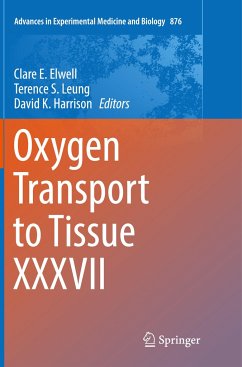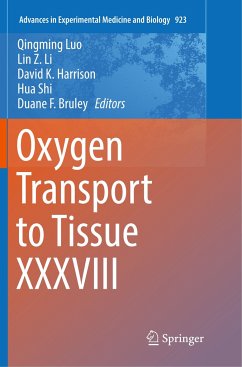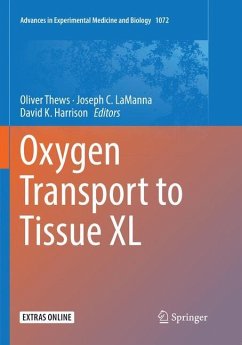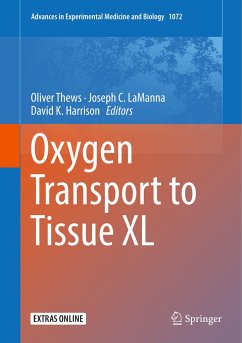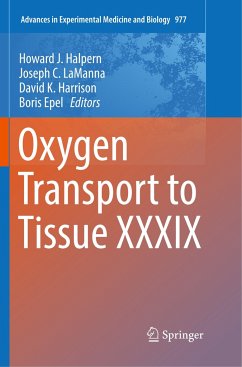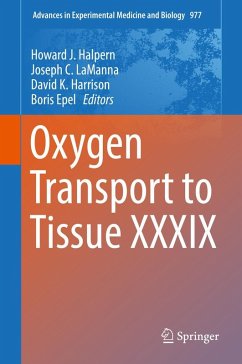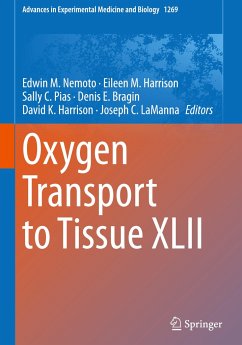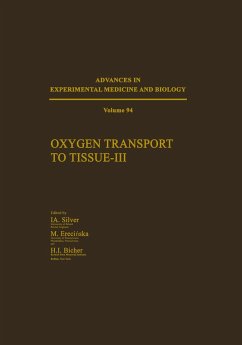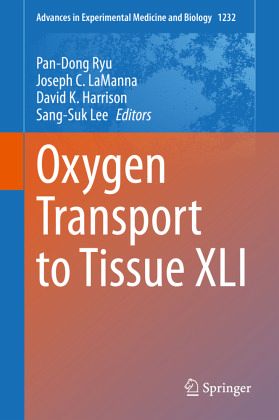
Oxygen Transport to Tissue XLI

PAYBACK Punkte
53 °P sammeln!
This book presents cutting-edge papers and perspectives on the transport of oxygen to tissues by scientists in a multitude of disciplines such as biochemistry, engineering, mathematics, medicine, physics, physiology, veterinary and complementary medicine. The book is composed of the following 6 parts: Brain Oxygenation and Function, Tumor Oxygenation and Metabolism, Muscle Oxygenation and Sports Medicine, Cell Metabolism and Tissue Oxygenation, Methodology of O 2 Measurements, and Special Topics. The articles in this book have been presented at the 46 th annual meeting of the International Soc...
This book presents cutting-edge papers and perspectives on the transport of oxygen to tissues by scientists in a multitude of disciplines such as biochemistry, engineering, mathematics, medicine, physics, physiology, veterinary and complementary medicine. The book is composed of the following 6 parts: Brain Oxygenation and Function, Tumor Oxygenation and Metabolism, Muscle Oxygenation and Sports Medicine, Cell Metabolism and Tissue Oxygenation, Methodology of O 2 Measurements, and Special Topics. The articles in this book have been presented at the 46 th annual meeting of the International Society on Oxygen Transport to Tissue (ISOTT 2018) held in Seoul, Republic of Korea, from July 1 to July 5, 2018. Academics, clinical and industry researchers, engineers, as well as graduate students who are interested in oxygen transport to tissue will find this book a great reference and a useful learning resource.



